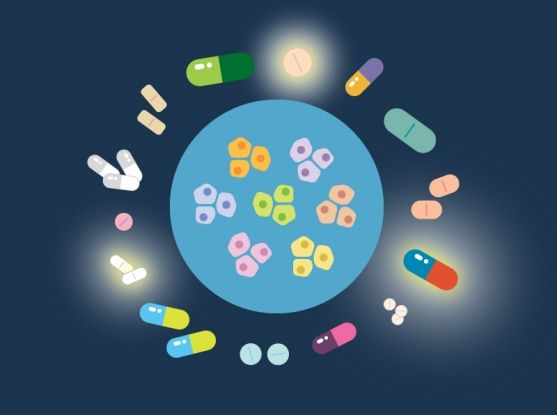Surprising findings could springboard the development of new anticancer drugs, or potentially even directly repurpose existing drugs for cancer therapy.
Drugs that are currently used to treat a wide range of conditions such as diabetes, inflammation, alcoholism, and even canine arthritis, can also kill laboratory-grown cancer cells, according to the results of a study by scientists at the Broad Institute of MIT and Harvard and Dana-Farber Cancer Institute. Using a molecular barcoding technology called PRISM (profiling relative inhibition simultaneously in mixtures) the researchers were able to screen thousands of existing drug compounds against different types of cancer cell lines. The results identified 49 compounds with previously unrecognized anticancer activity. The researchers say their surprising findings, which highlighted novel anticancer mechanisms and targets, could feasibly be used to springboard the development of new anticancer drugs, or potentially even directly repurpose existing drugs for cancer therapy.
We thought we’d be lucky if we found even a single compound with anticancer properties, but we were surprised to find so many,” said Todd Golub, MD, CSO and director of the cancer program at the Broad, the Charles A. Dana investigator in human cancer genetics at Dana-Farber, and professor of pediatrics at Harvard Medical School. Golub and colleagues reported their findings in Nature Cancer, in a paper titled, “Discovering the anticancer potential of non-oncology drugs by systematic viability profiling.”
